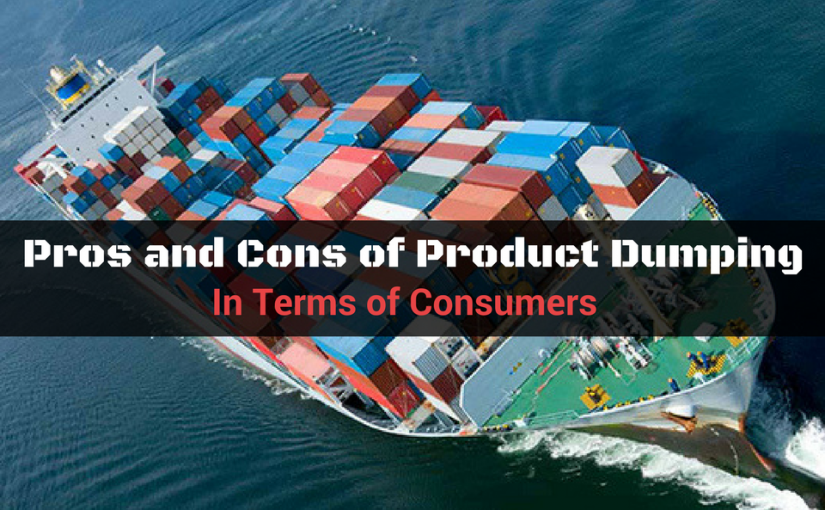So to start with the process of understanding what happens when a country decides to dump a product, let’s fist see how it begins to happen. They would set the price lower than any local company offers on domestic market and overflow the stores with their product. This would be very beneficial to the consumers because they would have the product at very low price. It might even create a higher demand. However, what consumers don’t always think about is that those prices are not the result of lower production costs or any other type of influence that would make this price level permanent. Not by a chance! This is strictly short term event that’s caused by overstocked warehouses in the exporting country. Once the balance is gained and the supply and demand reach equilibrium, the prices will go back to normal.
Nevertheless, one might argue would the prices really go back to normal. There is a consequence to lowering the prices below the lowest domestic price. The local businesses would start to lose customers, which would cause the production to drop. Everyone would enjoy the benefits of low cost product of the same quality. This trend would continue for a while and ultimately the local production would start to lose profit, eventually coming to their ends. With no domestic companies as competitors, the exporter country holds in their hands almost entire market and has the ability to control the prices both high and low. This means that when the product dumping stops, or if importing country’s legislature fails to impose anti-dumping measures in time, the exporter would hold most of the market and set prices whichever way they want. In other words, the prices could go extremely high, and depending on the state of local industry it could take years to set things into order. Small local businesses should be the first that need to recover, and then the rest of the industry, which takes a lot of time and keeps the consumers trapped with foreign products.
It’s not difficult to understand why product dumping is so controversial topic in business debates around the globe. In WTO, the most massive trade organization in the world, product dumping is frowned upon, but there are no strict restrictions towards members that perform such act. While in EU on the other side, if you decide to dump a certain product, you will face some serious repressive measures by EU institutions. Many countries impose anti-dumping measures in order to protect their local market and industry. All things considered, product dumping is a serious risk to for the consumers, and the domestic market overall.



